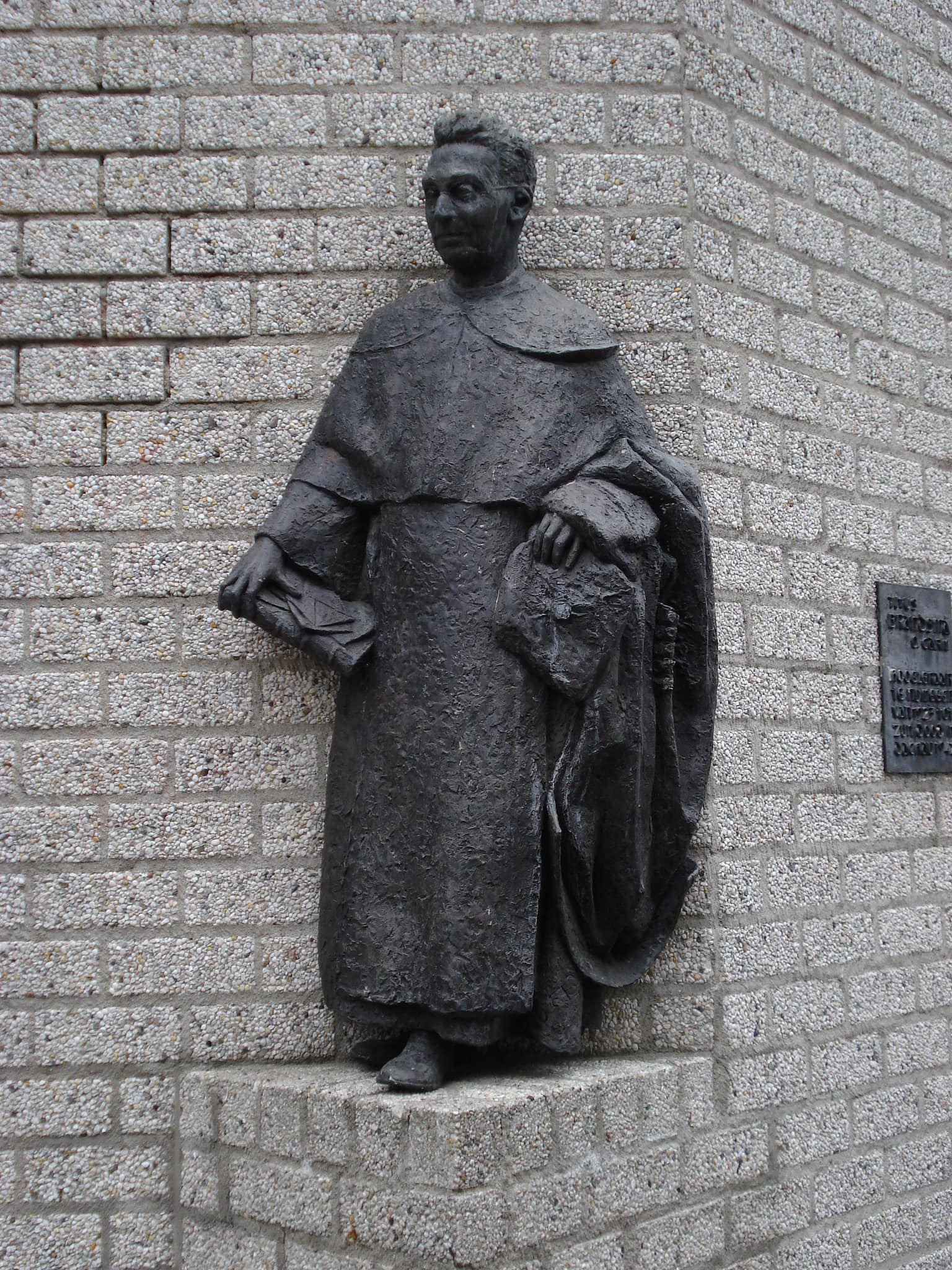529 total views
Homily for Tues of the 2nd Week in Ordinary Time, 17 Jan 2023, Memorial of the holy Martyr St. Titus Brandsma, Mk 2:23-28

The Pharisees in today’s Gospel remind me of the Greek mythological character named Procrustes. He was a bed maker who made his bed first and then forced his prospective clients to fit into it. If they were too big for his bed, he solved the problem by simply chopping down the would-be clients’ body parts that did not fit. If they were too short, he simply tied both head and limbs and pulled them from both ends in order to fit his bed.
It is a ridiculous story, of course. But that is precisely Jesus’ point in today’s Gospel about the Pharisees’ reaction to the disciples picking a few ears of corn on a Sabbath, because they were hungry. The disciples were questioned for violating the no-work law on Sabbath day because they did some harvesting. And the common sense answer of Jesus to them was, “Because they were hungry”. I imagine Jesus sarcastically asking, “I suppose your Sabbath is not going to be restful if you are hungry, no?” And he gave the example of David and his men.
Jesus concludes with a principle which he draws from the story of creation: “The Sabbath is made for man, not man for the Sabbath. That is why the Son of Man is Lord even of the Sabbath.” You can change the word Sabbath here and replace it with the Law, or Science, or Medicine, or even the State and the effect is the same.
Titus Brandsma landed in the concentration camp in Dachau and was eventually executed through lethal injection because he openly opposed the Nazi ideology of Hitler. His version of Jesus’ saying about Sabbath would have been: “The State was made for people, not people for the state.” Nazism imposed the “subordination of the individual to the state and the necessity of strict obedience to leaders.” It emphasized the inequality of individuals and “races” and “the right of the strong to rule the weak.”
I know that some people react vehemently when churches are used for purposes other than worship. They do have a point in normal circumstances. But we have photos of our churches being converted into field hospitals during the war, or evacuation centers during disasters. No doubt, they were not built for that purpose. But in times of war, in times of disaster, in times of need, we just use common sense and make adjustments, don’t we?
In the times lived by Titus Brandsma, the school, the printing press, and eventually even the concentration camp became his most potent venues for witnessing to holiness. And from the pulpit, he dared to challenge fellow Catholics to dare to defy the Nazi State’s racist policies against the Jews.
Jesus himself goes back to the basic principles behind the Sabbath law or why we must take a day off from work—that God himself rested on the seventh day after six days of hard work. Since he made us His image and likeness, he expects us to do the same. We are image and likeness of the Lord of the Sabbath. That is pointed out in the 3rd of the 10 Commandments as listed in Exodus 20. But the version in Deuteronomy 5, adds a further principle: If you are in need of rest to be able to work meaningfully and productively, so also are your workers, your animals and even the land that you till. Be fair to them.
We are interconnected. How can you rest if your neighbor is restless? Sometimes you may even go out of your way to take somebody else’s place, to do the work for him, precisely so that he can also enjoy the privilege of taking a rest. You rest to take care of yourself; you work to take care of others so that they can take a rest too. Like husbands who sometimes do the waking up when the baby cries at night because it is hungry or in need of a diaper replacement. He wakes up ahead so that his wife can rest too. He does not say, “I am tired from work; I deserve my rest.” Ah, but many husbands forget that being a housewife and a mother is not just a full time job. It is also without pay and without a day off. So what’s the big deal about a father waking up in the middle of the night to change his baby’s diaper so that his wife can also take a rest?
St. Titus could have simply kept quiet like many Europeans did about the inhumanity of the Nazi State, if only to save his skin. But he chose to unite himself with the suffering and death of Christ, who took upon himself the burden of our sins in order to “give us rest.”


















